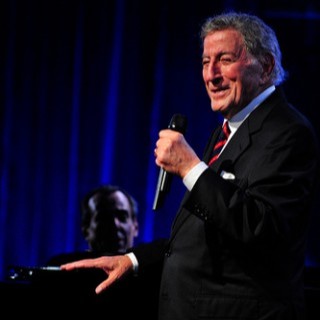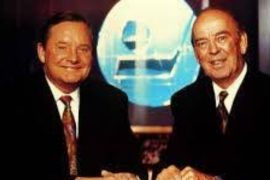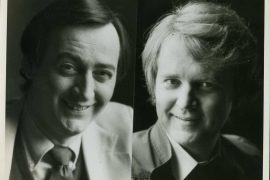
Eleven years ago, in 2012, Tony Bennett put on a show for TV critics in Pasadena, Calif.
The legendary singer, who passed away Friday in New York City at 96, was brought to the Television Critics Association during a January press tour by PBS. The U.S. public broadcaster has often treated reporters to a musical night out during long press runs. Other private PBS press tour concerts featured Annie Lennox, Sting, Roseanne Cash and Harry Connick, Jr. The B-52s performed the night after Bennett on the network’s second day of that particular press tour. It was not just that we got to hear these amazing musicians (for free, for Pete’s sakes), we got to hear them, as colleague Alex Strachan tweeted after Lennox’s set, from 25 feet away.
All of that incredible music was a luxury that was always very much appreciated. On this occasion, Bennett was promoting his appearance on PBS’s Great Performances‘ “Tony Bennett: Duets II.”
Despite being 85 at the time, the singer ran up the steps leading to the stage, in the dark, and belted out one show-stopping tune after another. Maybe This Time. The Way You Look Tonight. I Left My Heart in San Francisco.
He was backed by four jazz cats who never missed a beat. It was a private, 40-minutes show, just for us pampered show ponies. As fellow Canadian journalist Brad Oswald tweeted later, “Who gets to do this?”
At the time, Bennett was the oldest performer to top the Billboard charts, a feat he accomplished the year previous with his album, Duets II.
advertisement
Seeing him live was a kick-and-a-half. His showmanship, as you might expect from someone with sixty-plus years experience, was sensational. With a look, a nod, and hand gesture, he directed the audience where ever he wanted us to go.
It was his voice, however, which astounded, still firm and full of melody, Bennett played it like a jazz horn, taking it high and low, then reaching for power notes nobody his age could possibly hit. The man could have talked his way through San Francisco and be rewarded with a standing O. Instead, he took risks, big risks, and delivered on every one. The last four songs got people out of their seats.
After the set, Bennett was joined by his son Danny Bennett–who managed his dad’s career–and took as many questions as critics could throw at him. Why has he lasted? He only sings great songs. Songs from the Great American Songbook by Cole Porter, Irving Berlin, the Gershwins, Harold Arlen and “Yip” Harburg, Always has.
One thing he was proud of: he never did disco–despite recording 74 albums!
During his remarkable, seven-decade recording career, Bennett amassed 20 Grammy awards, a Lifetime Achievement award, two Emmys, was a Kennedy Center honoree and sold more than 50 million records worldwide. He also marched with Dr. Martin Luther King and was honored by the United Nations for his humanitarian efforts.
Despite the onset of Alzheimer’s, he recorded right up until August of 2021.
That night in 2012, however, Bennett’s mind was as sharp as a tack. He gave a full press conference after his performance, touching on history, war, the embrace of Barrack Obama at the time throughout Europe. Of his own legacy, he suggested that the great singers he most admired lived on because great songs never die:
George Gershwin and Irving Berlin and Cole Porter would never have a song introduced unless Fred Astaire introduced it. And those songs are never going to die. Frank Sinatra is never going to die. Nat King Cole is never going to die. Ella Fitzgerald is never going to die. They’re not old. They’re forever. And no country in the world has ever given that many beautiful, popular songs through Broadway and movies when soundies first came in. No country in the world has ever given the rest of the world so many glorious folk songs. And I’m absolutely convinced that within 35 years, it won’t be called light entertainment. It’s going to be called America’s classical music. Cole Porter, Gershwin, Harold Arlen, Johnny Mercer, Jerome Kern. You can’t get better. And now we have Stephen Sondheim. And it’s just great, great music, and it’s never going to die.






